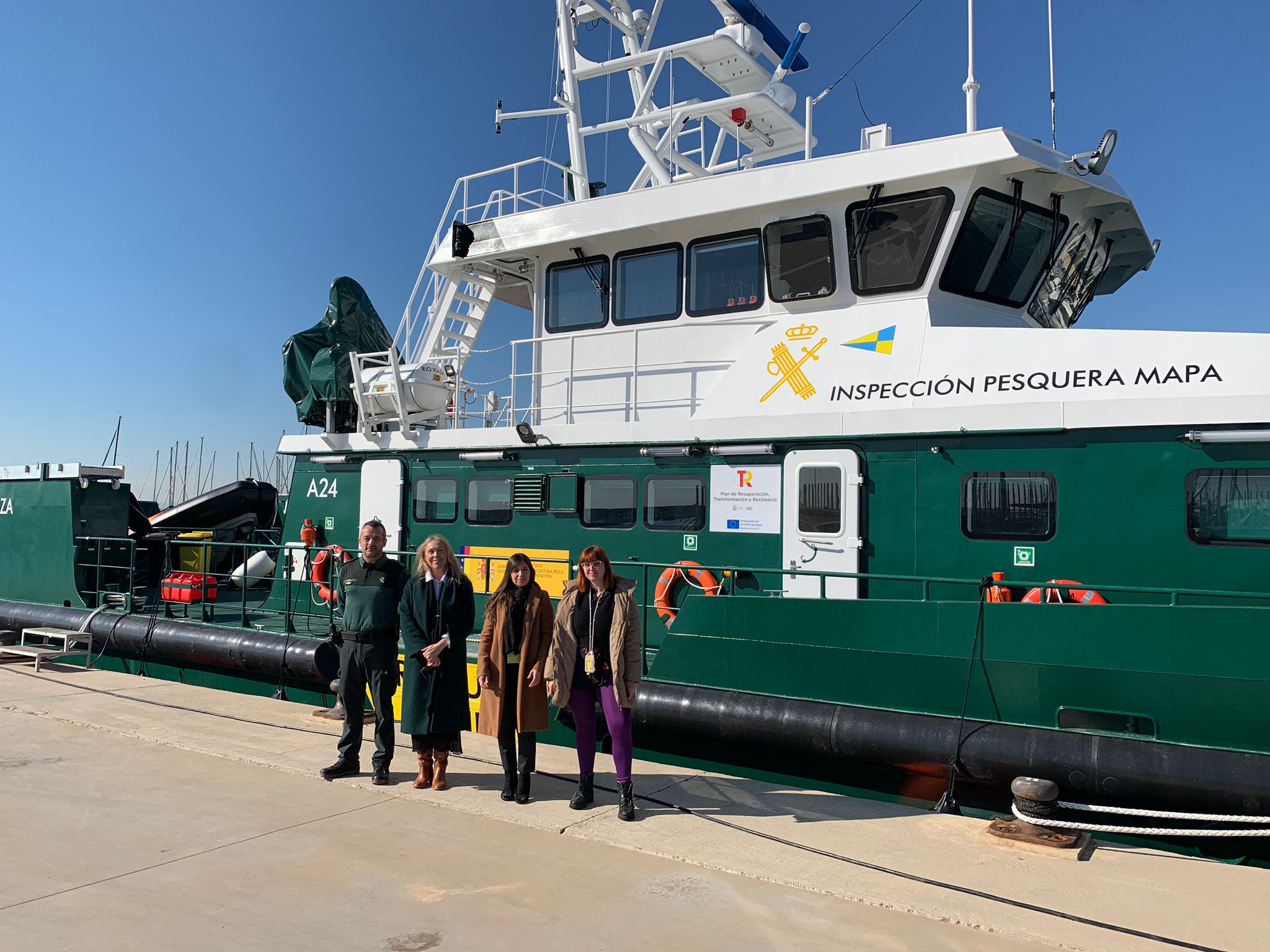
OCEANART PROJECT SE REÚNE CON EL SERVICIO MARÍTIMO DE LA GUARDIA CIVIL
Como ya sabéis, en OceanArt Project estudiamos los seis riesgos más importantes que ponen en peligro nuestros mares y, en consecuencia, a nuestro patrimonio cultural y natural marino.
Ayer, 1 de febrero, tuvimos la oportunidad de acercarnos a las instalaciones de la Guardia Civil que desempeña funciones en el mar de Valencia para intercambiar percepciones sobre el estado de la cuestión. Hemos podido hablar con Don Pedro Pérez Cutillas, Capitán Jefe del Servicio Marítimo Provincial de la Guardia Civil de Valencia, y otros especialistas del Servicio Marítimo y, además, evaluar colaboraciones conjuntas.
El Servicio Marítimo de la Guardia Civil se creó en 1992 (Orden General número 51, de 17 de marzo), aunque un Real Decreto, fechado el 22 de febrero de 1991, constituye su acta fundacional. Su creación motivó la necesidad de proveer al Cuerpo de medio materiales y humanos debidamente calificados para desempeñar funciones de la Institución dentro del mar territorial y con carácter excepcional fuera de él.
En este Real Decreto 246/1991, que regula el Servicio Marítimo de la Guardia Civil, en su artículo primero contempla que: “las funciones que la Ley Orgánica 2/1986 de 13 de marzo de Fuerzas y Cuerpos de Seguridad atribuye al cuerpo de la Guardia Civil se ejercerán e las aguas marítimas españolas hasta el límite exterior del mar territorial determinado en la legislación vigente y, excepcionalmente fuera del mar territorial, de acuerdo con lo que se establece en los tratados internacionales”.
En la visita de hoy hemos podido comprender cuáles son los cometidos fundamentales de la Guardia Civil con servicio Marítimo que, de un modo formal, se despliegan de la siguiente manera:
- Judicial: prevención y averiguación de delitos, primeras diligencias e informes.
- Fiscal: resguardo fiscal del Estado y las actuaciones encomendadas a evitar y perseguir el contrabando.
- Administrativo: conservación de la naturaleza y el medio ambiente, control e inspección pesquera y de embarcaciones deportivas, protección del patrimonio histórico sumergido y el control de inmigración irregular.
- Misiones en el extranjero: participación en aquellas misiones internacionales de cooperación policial, mantenimiento de la paz o humanitarias que se desarrollen en el ámbito marítimo.
- Colaboración y cooperación nacional: relaciones de colaboración con otros organismos españoles con competencias en el mar, como Salvamento Marítimo, Marina Mercante, Aduanas, Medio Ambiente, Pesca y la Armada.
Además de los cometidos fundamentales hemos podido conocer la dinámica de su trabajo, las increíbles embarcaciones. A modo de cierre, tres especialistas del Servicio Marítimo nos dieron un paseo por el Mar Mediterráneo.
Una visita realmente interesante, emocionante y que, sin lugar a dudas, nos ha motivado a seguir adelante cuidando de nuestro mar y nuestro patrimonio.
__
OCEANART PROJECT MEETS WITH THE MARITIME SERVICE OF THE CIVIL GUARD
As you know, in OceanArt Project we study the six most important risks that endanger our seas and, consequently, our cultural and natural marine heritage.
Yesterday, February 1st, we had the opportunity to visit the facilities of the Guardia Civil that performs functions in the sea of Valencia to exchange perceptions on the state of the matter. We were able to talk with Mr. Pedro Pérez Cutillas, Chief Captain of the Provincial Maritime Service of the Civil Guard of Valencia, and other specialists of the Maritime Service and, in addition, to evaluate joint collaborations.
The Maritime Service of the Civil Guard was created in 1992 (General Order number 51, March 17), although a Royal Decree, dated February 22, 1991, constitutes its founding act. Its creation was motivated by the need to provide the Corps with material and human means duly qualified to carry out the functions of the Institution within the territorial sea and exceptionally outside it.
In this Royal Decree 246/1991, which regulates the Maritime Service of the Civil Guard, in its first article it states that: “the functions that the Organic Law 2/1986 of March 13, 1986 on Security Forces and Corps attributes to the Civil Guard Corps will be exercised in Spanish maritime waters up to the outer limit of the territorial sea determined in the legislation in force and, exceptionally outside the territorial sea, in accordance with what is established in international treaties”.
In today’s visit we have been able to understand what are the fundamental tasks of the Civil Guard with Maritime service that, in a formal way, are deployed as follows:
– Legal: prevention and investigation of offenses, first proceedings and reports.
– Fiscal: fiscal protection of the State and the actions entrusted to prevent and prosecute smuggling.
– Administrative: conservation of nature and the environment, control and inspection of fishing and sport boats, protection of the submerged historical heritage and control of irregular immigration.
– Missions abroad: participation in those international missions of police cooperation, peacekeeping or humanitarian missions carried out in the maritime field.
– Collaboration and national cooperation: collaboration relations with other Spanish organizations with competences in the sea, such as Maritime Rescue, Merchant Marine, Customs, Environment, Fisheries and the Navy.
In addition to the fundamental tasks, we were able to learn about the dynamics of their work, the incredible vessels. In closing, three specialists from the Maritime Service gave us a tour of the Mediterranean Sea.
A really interesting and exciting visit, which undoubtedly motivated us to continue taking care of our sea and our heritage.
__

